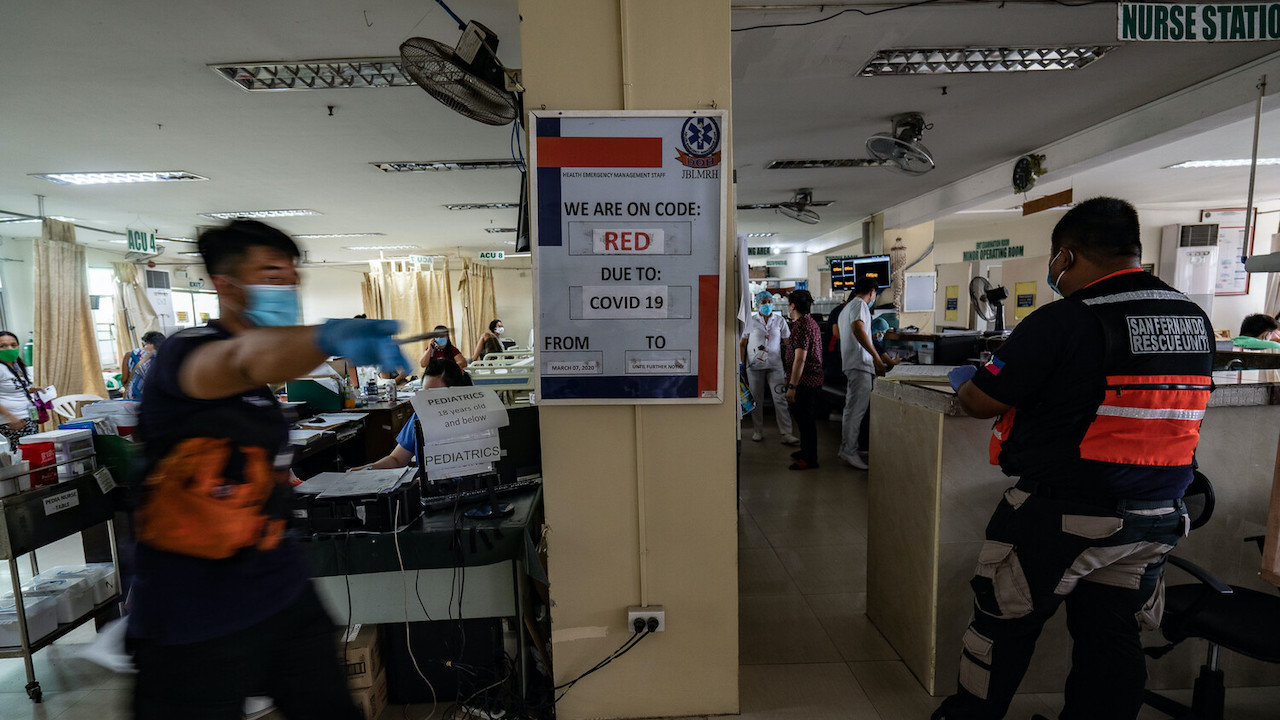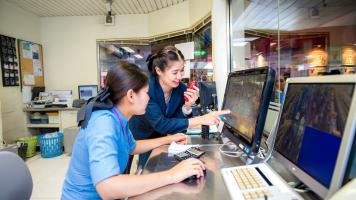How the Republic of Korea e-Asia and Knowledge Partnership Fund Is Helping Southeast Asian Countries amid COVID-19

Thanks to the fund's support, ADB’s Southeast Asia Department has been able to publish a compendium of policy briefs to help countries recover from the pandemic. Photo credit: ADB.
An ADB-backed program sharing cutting-edge knowledge and best practices with senior government officials has helped countries accelerate recovery from COVID-19.
Southeast Asian countries continue to reel from the impact of the coronavirus disease (COVID-19) pandemic. In its latest outlook for the region, the Asian Development Bank (ADB) forecast gross domestic product (GDP) growth at 3.1% for 2021, down from the 4.4% projected in April. For 2022, Southeast Asia will grow at 5%, which is a notch lower than the 5.1% projected in April.
Amid this backdrop, the Republic of Korea e-Asia and Knowledge Partnership Fund (EAKPF) has provided support to Southeast Asian countries through ADB’s Policy Actions for COVID-19 Economic Recovery (PACER) Dialogues, which shares cutting-edge knowledge and best practices with senior government officials to help countries accelerate economic recovery and strengthen cooperation to mitigate the devastating effects of COVID-19. The dialogues featured experts from around the world.
Thanks to EAKPF’s support, ADB’s Southeast Asia Department has also been able to publish a compendium of policy briefs from the PACER Dialogues, highlighting discussions, recommendations, and actionable insights for Southeast Asian countries and the People’s Republic of China as they try to recover from the crisis.
The publication aims to guide policy makers in dealing with the challenges caused by the pandemic. It also aims to contribute to the crucial work of policy architects, industry players, academics, development practitioners, and other stakeholders as they work toward overcoming the worst effects of COVID-19.
The compendium has four chapters, each offering insights on how countries can bounce back from the crisis. The first chapter looks at policy lessons from the Republic of Korea (ROK). The second recommends policy options to help the poor and the vulnerable. The third examines how countries can accelerate digital transformation. And the last chapter studies health standards needed in a post-pandemic world and looks at options to revive travel in the region.
BIG Program
EAKPF’s support was coursed through the Building Capacity for Enhanced Connectivity in Southeast Asia technical assistance (TA) project, which covers the Brunei Darussalam–Indonesia–Malaysia–Philippines East ASEAN Growth Area (BIMP-EAGA), the Indonesia–Malaysia–Thailand Growth Triangle (IMT-GT), and the Greater Mekong Subregion (GMS) Economic Cooperation Program. The project is also known as the BIMP-EAGA, IMT-GT, and GMS Capacity Building Program for Connectivity (BIG Program), a regional capacity development initiative for government officials to share knowledge and experience, network, and learn from each other on regional cooperation and integration, and connectivity.
The TA aims to increase the capacity of government officials in the region to develop and implement projects, programs, and policies in line with the pillars of the Master Plan on ASEAN Connectivity.
Working alongside institutional partners, including international organizations, governments, universities, and educational institutions, the BIG Program has organized 26 trainings and seven knowledge events attended by almost 1,000 participants. An internet-based information repository and website, which serves as a platform for information dissemination and knowledge exchanges among trainees and partners of the TA, became operational in 2017, and continues to get financing from EAKPF.
What is EAKPF?
EAKPF covers all ADB sectors, with particular focus on infrastructure (transportation, logistics, telecommunications, and water); information and communications technology-based smart city development; clean energy, climate change and disaster risk management, and rural development; and health (hospitals, medical systems, and bio industry).
The fund supports ADB's technical assistance, grants, and investment which contribute to project readiness, policy reforms, institutional capacity building, and knowledge dissemination.
All ADB's developing member countries are eligible for funding. The fund supports regional and country-specific initiatives.
With an initial contribution of $20 million, the ROK has since made annual additional contributions to the fund. Total contribution from ROK amounts to $122.20 million by the end of 2020. Of the amount, $11.20 million was set aside to support Southeast Asian countries, excluding regional projects.


